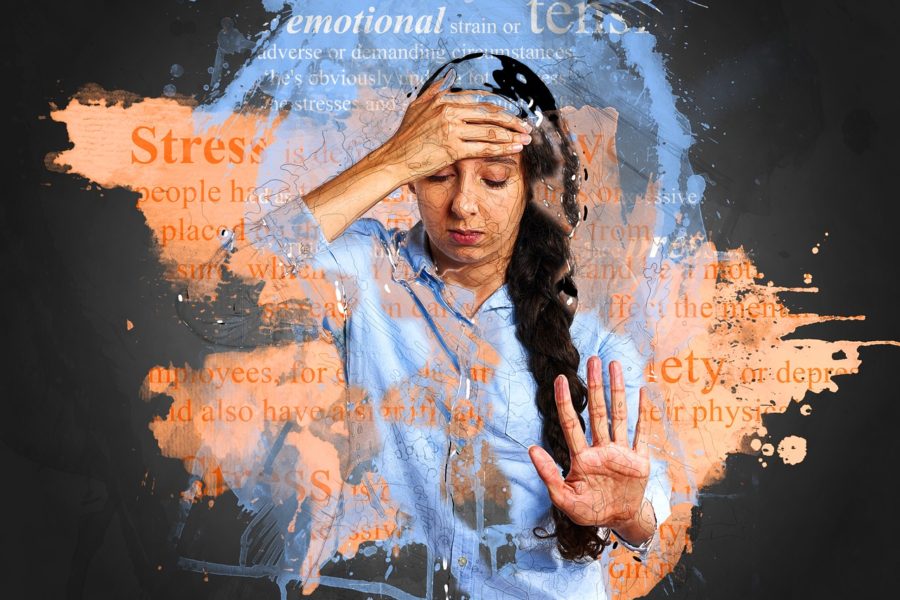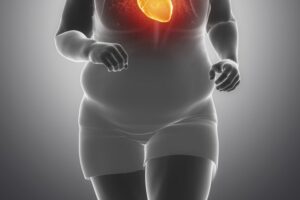Treating Anxiety with Integrative Medicine
If you frequent the health and wellness sections of a variety of well-known news websites you are likely to have heard the news that over the last year the nation’s score on anxiety rose several points (Welch, 2018). This isn’t some hyped up headline to grab your attention either. In a recent public opinion poll by the American Psychiatric Association, Americans’ anxiety is rising (APA, 2018). The treatment for anxiety from a Functional and Integrative Medicine view is to work on a variety of lifestyle factors such as diet, physical activity, and stress management techniques from yoga and meditation to conventional cognitive behavioral therapy. In a study of cancer patients it was found that Integrative Medicine therapies resulted in substantial drops in both pain and anxiety (Johnson et al., 2014). If you haven’t seen an integrative health care provider, now is a great time to set up an appointment.
What do I do while I wait to see an integrative health care provider?
While you are waiting on your appointment there is some action that you can take right now to help calm your nerves, sooth your mind, and take the edge off your anxiety. Simple things like a relaxing bath at home, going for a walk in a park, taking a yoga class, or getting a message can all help to reduce some of the anxiety you are carrying with you. In addition to these treatments, one supplement to consider is Vitamin D.
Vitamin D for anxiety
A Vitamin D deficiency is more common than you might think and even people who consider themselves outdoors types may not be getting enough, especially if you are lathering on the sunscreen while outside or spend most of your days indoors at work.
Lots of research supports the use of Vitamin D for anxiety and its common partner, depression. Armstrong et al. (2007) found a link between Vitamin D deficiency and anxiety and depression in fibromyalgia patients, meanwhile Kimball, Mirhosseini, & Rucklidge (2018) found in a study of 16,020 people that “people from the general population who suffer from mood and anxiety problems may benefit.”
Recommended dosage
Vitamin D is tricky because the amount needed may vary from person to person and geographic location but even people living in Florida or California can develop a deficiency if they spend most of the daylight hours inside. In addition, since it is the sunshine vitamin, those who make a diligent effort to get sunshine exposure on most of their skin, most days of the year, may not need to supplement (or do so at a lower dosage) while others may need to supplement more due a defective Vitamin D receptor gene. The latter is the bucket that I fall into, which requires me to supplement up to 5,000 IU’s a day to get my blood levels up to where they need to be. Guilliams (2014) provides several recommendations, with The Point Institute recommending between 3,800-5,000 IU per day, the Institute of Medicine recommending 600 IU per day, the Vitamin D Council recommending 5,000 IU per day and Dr. Michael Holick recommending 2,000-3,000 IU per day. In order to prevent any sort of toxicity issue with Vitamin D I stick with Dr. Michael Holick with 2,000-3,000 IUs per day in the absence of blood work suggesting a larger dose is needed. Keep in mind this is for people who spend most of their days indoors or who don’t get much sunshine without substantial clothing or sunscreen. If you get some sunshine on some days but little on others then 500-1,000 IUs may be all you need. If this is the case and you’re taking a quality multivitamin then you may already be getting this amount.
If you don’t have a recommendation from your medical professional, then stay below 4,000 IU’s per day since there is a risk of toxicity from too much Vitamin D when taken as a supplement. Also, if you have high calcium levels in your blood (hypercalcemia), sarcoidosis, histoplasmosis, an over-active parathyroid gland, lymphoma, or tuberculosis, talk to your medical professional because Vitamin D supplementation may increase your risk of kidney stones (WebMD, 2018).

References:
American Psychiatric Association (APA). (March, 2018). APA public opinion poll-annual meeting 2018. https://www.psychiatry.org/newsroom/apa-public-opinion-poll-annual-meeting-2018
Armstrong, D. J., et al. (2007). Vitamin D deficiency is associated with anxiety and depression in fibromyalgia. Clinical Rheumatology, 26(4), 551-554.
Guilliams, T. G. (2014). Supplementing dietary nutrients: A guide for healthcare professionals. Stevens Point, WI: Point Institute
Johnson, J. R., et al. (2014). Effects of integrative medicine on pain and anxiety among oncology inpatients. Journal Of The National Cancer Institute. Monographs, 2014(50), 330-337. doi:10.1093/jncimonographs/lgu030
Kimball, S. M., Mirhosseini, N., & Rucklidge, J. (2018). Database Analysis of Depression and Anxiety in a Community Sample—Response to a Micronutrient Intervention. Nutrients, 10(2), 152. http://doi.org/10.3390/nu10020152
WebMD. (2018). Vitamin D. Retrieved from: https://www.webmd.com/vitamins/ai/ingredientmono-929/vitamin-d
Welch, A. (May 7, 2018). Americans are more anxious than a year ago, survey finds. CBS news. Retrieved from: https://www.cbsnews.com/news/americans-are-more-anxious-than-a-year-ago-survey-finds/







